Former President of Mexico says University of Bradford changed his life
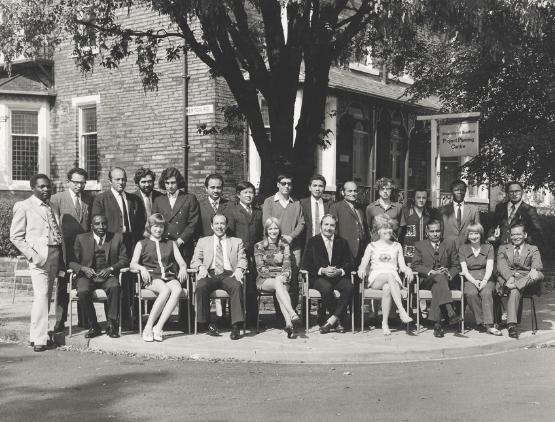
As a former president of Mexico and currently a Yale professor and member of ‘The Elders’, Ernesto Zedillo Ponce de Leon has lived through many inspirational episodes but, the 71-year-old singles out a 12-week course at the University of Bradford in 1973 as a particularly transformative experience.
He will return to his alma mater in July - 50 years on - to receive an honorary doctorate of letters, in recognition for his achievements on the world stage, as part of this year's Summer Graduations.
Speaking about his time at the University of Bradford, he said: “At every step of my education I was blessed to encounter teachers who were exemplary, and my brief time at Bradford wasn’t an exception. My instructors had a keen interest in the problems of developing countries which I embraced and have kept ever since. For example, I remember Professor Mike Veitch’s passion for economic development which he transmitted in his lectures on project evaluation. Although later, as a graduate student, I was lucky to study with towering figures in the field of development, Professor Veitch nevertheless remained a significant influence in my professional career.
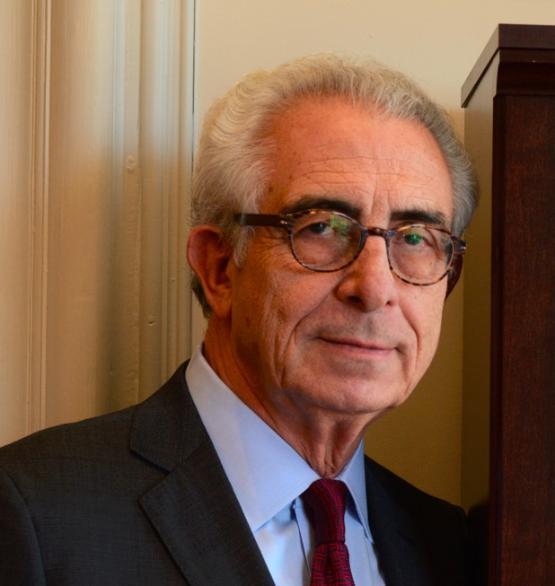
“Also, it was at Bradford where I acquired a sense of belonging to a world beyond the borders of my beloved Mexico. I had never been abroad and there I was at the University of Bradford meeting and enjoying fellows from many countries. Frankly I had never met people from places like Ghana, Nigeria, Nepal, Philippines, Yugoslavia and many others. Being part of that fascinating group, started my formation as the Mexican global citizen of the world that proudly I am today.”
Ernesto says being elected President of Mexico - a post he occupied from 1994 to 2000 - was accidental since only a tragedy - the assassination of his dear friend Luis Donaldo Colosio while campaigning for the presidency - made it imperative to take his place as the candidate of their party.
A trained economist, he is famed for taking charge of one of the worst economic crises to face Mexico while leading decisively the reforms that transformed his country into a full democracy. He also started the first conditional-cash transfer-program in the world, which has been replicated in many developing countries to combat poverty.
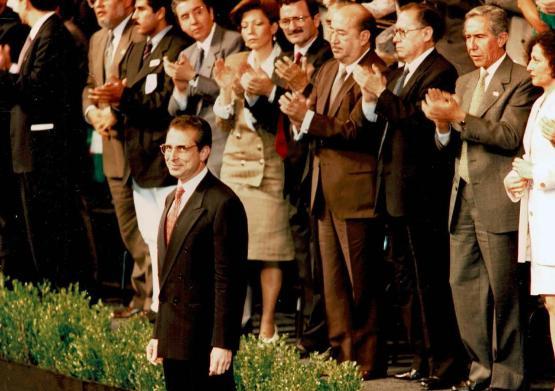
Born in a working-class family, his parents placed a great emphasis and effort on their children’s education. He earned his bachelor's degree from the School of Economics of the National Polytechnic Institute in Mexico and his M.A., M.Phil., and Ph.D. degrees at Yale University. After finishing his undergraduate studies and thanks to a scholarship granted by the British Council, he attended the University of Bradford in the summer of 1973 to study project evaluation, an opportunity that firmly encouraged and supported his pursuit of graduate studies.
After completing his education at Yale, Ernesto returned to Mexico to teach and do economic research, but as his work increasingly dealt with public policy issues, his career became one of public service and politics. At a relatively young age, he became a Deputy Director at the Central Bank of Mexico; Deputy Minister of the Budget; Minister of Economic Programming and the Budget; and Minister of Education. At 42, in 1994, he was elected President of Mexico.
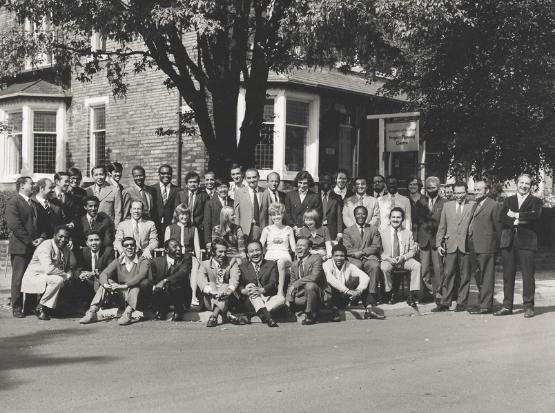
Commenting on his time in Bradford, he recalled: “It was an extremely rich and enjoyable experience that would mark me for the rest of my life. Yorkshire people were extremely friendly and very welcoming, and I have enormous gratitude for the opportunity I was given.”
He continued: “If becoming the president was accidental, the same could be said about the other important stages of my career. Every time there were difficult circumstances, I was promoted to a more complex responsibility. That was true in 1982 when the debt crisis started in Mexico, and I was assigned a job to help solve it. I like to think that without the debt crisis that led to the so-called lost decade of Latin America’s development, I would have remained, happily, a low-key economist doing research at Mexico’s Central Bank. But the difficulties faced my country animated my strong wish to do public service where it was most needed - in the design and execution of policies to stabilize the economy and deal with the long-standing impediments for Mexico’s development.”
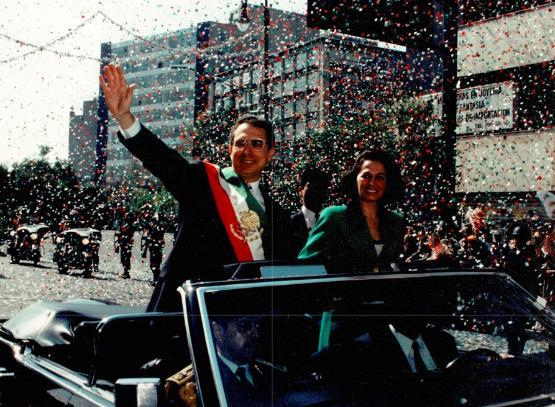
Advice to graduates
Asked what advice he might give to graduates of 2023, he said: “Quoting Oscar Wilde, I would say: ‘It is always a silly thing to give advice, but to give good advice is absolutely fatal.’
“In all seriousness, I think the graduates of 2023 should be extremely proud of having attended the University of Bradford, which while it may not be as well-known and old as other institutions, is a university that was born with a clear mission to pursue both excellence and inclusion and that has honoured it all along. This year’s graduates, as undoubtedly I was in 1973, will be beneficiaries of that pursuit.
“The education you have been given at the University of Bradford will be good for you and your family but must be good also for others. What you have acquired is a tool not just to serve yourself but to serve your community, your country, and the whole of humanity, first and foremost by doing a fine job, with integrity and dedication, in whatever field you have chosen.”
On the global economy
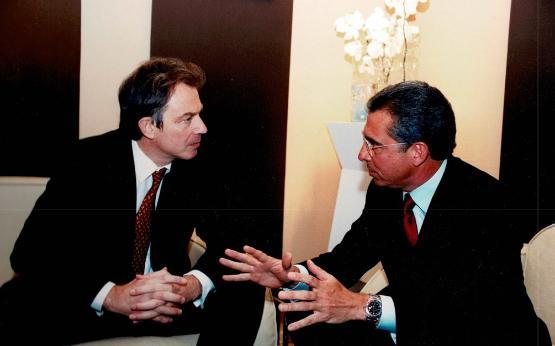
“One of the things that was taught at Bradford, which was at the core of our training, was the relevance of applying resources to their best social use, not just the private one. That is the essence of the social evaluation of investment projects at which we were trained during our stay at Bradford.
“To think about the collective interest - not just the individual one - is crucial, not just at the national level but equally at the global level. If you want a vibrant global market economy, which is something we need not only for economic prosperity but also for reasons of international peace and stability, it must be acknowledged you also need a system of global governance.
“The need of governance along with markets has long been recognized, certainly since the time of the great philosopher Adam Smith who provided the rationale and explained the great benefits of the market economy but who also emphasized the importance of government and justice for that economy to function properly.
“To have good markets, rules of engagement and to solve controversies along with mechanisms to mitigate market failures, are needed. Markets, to accomplish their social function, need good governments locally and nationally. The same is true at the world level. Unfortunately, this condition is not being met. The expansion of the global economy is not being matched by the construction of the required global governance. And this mismatch is bound to bring about significant problems as already shown during the great financial crisis of 2008-2009 and the failure to deal effectively with climate change, among many other international problems.”
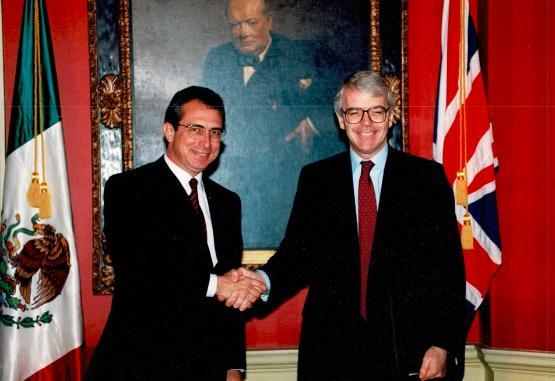
The Elders
Ernesto now concerns himself with numerous activities, not least teaching at Yale, serving in numerous international independent commissions, and being a member of The Elders, the group founded by Nelson Mandela with a remit to promote global peace, prosperity and social justice.
“The Elders stress the importance of international cooperation and the respect of international law and multilateral institutions to achieve peace and development throughout the world. We believe in the protection of human rights as the supreme covenant of international law. We regret the mounting disregard for international law and institutions currently shown by great powers, certainly by Russia with its criminal invasion of Ukraine but also done by other powers in recent history as in the 2003 invasion of Iraq. Human progress can be stopped and reversed if the world moves as in the past to the rule of power and instead abandons, rather than reform, the rules-based international system built painstakingly since the end of the Second World War.”
He added: “I find it fascinating that the University of Bradford has put together, in one academic Department, Peace and Development studies. I feel proud that somehow a seminal constituent of the now Department of Peace Studies and International Development can be traced back to the Project Planning Centre, where I studied.
“I also enjoys the coincidence that the Peace Studies Department - the first in the UK and the world - was born the year I was at Bradford. When I worry (frequently) about countries affected by conflict, I like to invoke a mantra: peace for development and development for peace, so it is comforting to know the University of Bradford pursues this practice through serious research and teaching.”
